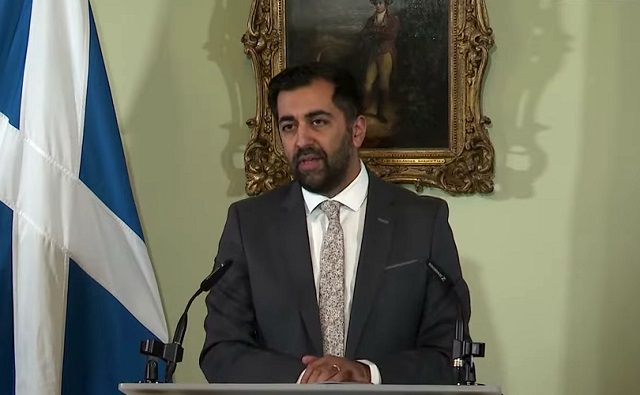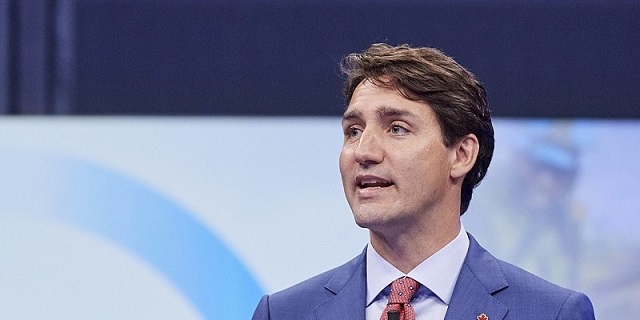Uncategorized
Washington awaits results after Mueller wraps Russia probe

WASHINGTON — Special counsel Robert Mueller closed his long and contentious Russia investigation with no new charges, ending the probe that has cast a dark shadow over Donald Trump’s presidency. The Justice Department was expected to release the main findings as soon as Saturday.
Even with the details still under wraps, the end Friday of the 22-month probe without additional indictments by Mueller was welcome news to some in Trump’s orbit who had feared a final round of charges could ensnare more Trump associates, including members of the president’s family.
For now, the report is accessible to only a handful of Justice Department officials while Attorney General William Barr prepared to release the “principal findings” soon.
The Justice Department said the report was delivered by a security officer Friday afternoon to the office of Deputy Attorney General Rod Rosenstein, and then it went to Barr. Word of the delivery triggered reactions across Washington, including Democrats’ demands that it be quickly released to the public and Republicans’ contentions that it ended two years of wasted time and money.
The next step is up to Barr, who is charged with writing his own account of Mueller’s findings and sending it to Congress. In a letter to lawmakers , he declared he was committed to transparency and speed. He said he could provide details as soon as this weekend.
The White House sought to keep some distance from the report, saying it had not seen or been briefed on the document. Trump, surrounded by advisers and political supporters at his resort in Florida, stayed uncharacteristically quiet on Twitter.
With no details released at this point, it’s not known whether Mueller’s report answers the core questions of his investigation: Did Trump’s campaign collude with the Kremlin to sway the 2016 presidential election in
But the delivery of the report does mean the investigation has concluded without any public charges of a criminal conspiracy between the campaign and Russia, or of obstruction by the president. A Justice Department official confirmed that Mueller was not recommending any further indictments.
That person, who described the document as “comprehensive,” was not authorized to discuss the probe and asked for anonymity.
That’s good news for a handful of Trump associates and family members dogged by speculation of possible wrongdoing. They include Donald Trump Jr., who had a role in arranging a Trump Tower meeting at the height of the 2016 election campaign with a Kremlin-linked lawyer, and Trump’s son-in-law, Jared Kushner, who was interviewed at least twice by Mueller’s prosecutors. It wasn’t immediately clear whether Mueller might have referred additional investigations to the Justice Department.
All told, Mueller charged 34 people, including the president’s former campaign chairman, Paul Manafort, his first national security adviser, Michael Flynn, and three Russian companies. Twenty-five Russians were indicted on charges related to election interference, accused either of hacking Democratic email accounts during the campaign or of orchestrating a social media campaign that spread disinformation on the internet. Five Trump aides pleaded guilty and agreed to
It’s unclear what steps Mueller might take if he uncovered what he believes to be criminal wrongdoing by Trump, in light of Justice Department legal opinions that have held that sitting presidents may not be indicted.
In his letter to lawmakers, Barr noted the Justice Department had not denied any request from the special counsel, something Barr would have been required to disclose to ensure there was no political inference. Trump was never interviewed in person, but submitted answers to questions in writing.
The mere delivery of the confidential findings set off swift, full-throated demands from Democrats for full release of Mueller’s report and the supporting evidence collected during the sweeping probe. As Mueller’s probe has wound down, Democrats have increasingly shifted their focus to their own investigations, ensuring the special counsel’s would not be the last word on the matter.
House Speaker Nancy Pelosi and Senate Minority Leader Chuck Schumer declared it “imperative” to make the full report public, a call echoed by several Democrats vying to challenge Trump in 2020.
“The American people have a right to the truth,” Schumer and Pelosi said in a joint statement.
Democrats also expressed concern that Trump would try to get a “sneak preview” of the findings.
“The White House must not be allowed to interfere in decisions about what parts of those findings or evidence are made public,” they said in a joint statement.
It was not clear whether Trump would have early access to Mueller’s findings. Spokeswoman Sarah Sanders suggested the White House would not interfere, saying “we look forward to the process taking its course.” But Trump’s personal attorney, Rudy Giuliani, told The Associated Press Friday that the legal team would seek to get “an early look” before they were made public.
Giuliani said it was “appropriate” for the White House to be able “to review matters of executive privilege.” He said had received no assurances from the Department of Justice on that front. He later softened his stance, saying the decision was “up to DOJ and we are confident it will be handled properly.”
The White House did receive a brief heads-up on the report’s arrival Friday. Barr’s chief of staff called White House Counsel Emmet Flood Friday about 20 minutes before sending the letter went to the Republican and Democratic leaders of the Senate and House Judiciary committees.
The chairman of the Senate panel, Lindsey Graham of South Carolina, was keynote speaker Friday night at a Palm Beach County GOP dinner at Trump’s Mar-a-Lago resort. Early in the evening, the president appeared on a balcony to wave at the crowd of more than 600 enjoying cocktails and appetizers by the pool, according to party vice-chairwoman Tami Donnally, who attended the event.
Barr has said he wants to make as much public as possible, but any efforts to withhold details is sure to prompt a tussle between the Justice Department and lawmakers who may subpoena Mueller and his investigators to testify before Congress. Rep. Adam Schiff, D-Calif., threatened a subpoena Friday.
Such a move would likely be vigorously contested by the Trump administration.
The conclusion of Mueller’s investigation does not remove legal peril for the president . Trump faces a separate Justice Department investigation in New York into hush money payments during the campaign to two women who say they had sex with him years before the election. He’s also been implicated in a potential campaign finance violation by his former lawyer, Michael Cohen, who says Trump asked him to arrange the transactions. Federal prosecutors, also in New York, have been investigating foreign contributions made to the president’s inaugural committee.
No matter the findings in Mueller’s report, the investigation has already illuminated Russia’s assault on the American political system, painted the Trump campaign as eager to exploit the release of hacked Democratic emails and exposed lies by Trump aides aimed at covering up their Russia-related contacts.
The special counsel brought a sweeping indictment accusing Russian military intelligence officers of hacking Democrat Hillary Clinton’s campaign and other Democratic groups during the 2016 campaign. He charged another group of Russians with carrying out a large-scale social media disinformation campaign against the American political process that also sought to help Trump and hurt Clinton.
Mueller also initiated the investigation into Michael Cohen, the president’s former lawyer, who pleaded guilty in New York to campaign finance violations arising from the hush money payments and in the Mueller probe to lying to Congress about a Moscow real estate deal. Another Trump confidant, Stone, is awaiting trial on charges that he lied about his pursuit of Russian-hacked emails ultimately released by WikiLeaks.
Mueller has also been investigating whether the president tried to obstruct the investigation. Since the special counsel’s appointment in May 2017, Trump has increasingly tried to undermine the probe by calling it a “witch hunt” and repeatedly proclaiming there was “NO COLLUSION” with Russia.
But one week before Mueller’s appointment, Trump fired FBI Director James Comey, later saying he was thinking of “this Russia thing” at the time.
___
Associated Press writer Jonathan Lemire in New York contributed to this report.
Eric Tucker, Michael Balsamo And Chad Day, The Associated Press
Uncategorized
RCMP recruitment failure has Alberta advocacy group calling for Provincial Police Service

News release from Free Alberta Strategy (A Strong And Sovereign Alberta Within Canada)
“Make no mistake, we are paying for these services that we aren’t receiving. Alberta’s taxpayers are paying tens of millions of dollars for nearly 400 vacant RCMP officer positions – for boots that are not on the ground.”
A recent report from the Royal Canadian Mounted Police (RCMP)’s independent Management Advisory Board had findings that are nothing short of alarming:
“Federal policing has now arrived at a critical juncture of its sustainability, which present risks for the national security and safety of Canada, its people, and its interests,” says the report.
After over a year of diligent study, the Board has been tirelessly firing off flares, signalling to all who will listen: the very foundation of our national public safety apparatus may be at risk of faltering.
This is doubly problematic because, as you well know, the RCMP is also responsible for boots-on-the-ground policing in large parts of the country, including many rural and remote areas – including in Alberta.
Rural crime has been a longstanding issue in Alberta, and social disorder continues to make headlines nightly.
Alberta Minister of Public Safety, Mike Ellis, took to social media platform X (formerly known as Twitter) to express his opinion:
“The independent report finds the RCMP has struggled in recent years to recruit and retain regular members, a problem that’s particularly acute in federal policing. This is not about the hard-working men and women on the frontline: they are doing everything they can. The reality is the RCMP do not have enough officers to police communities in Canada effectively.”
Ellis has been ahead of this story for months now.
In March, Ellis stated that:
“… on average, Alberta has an RCMP officer vacancy rate of 20 per cent. This means that Alberta is only being served by 1,522 of the 1,911 RCMP officers that the federal government has authorized for Alberta.”
“Make no mistake, we are paying for these services that we aren’t receiving. Alberta’s taxpayers are paying tens of millions of dollars for nearly 400 vacant RCMP officer positions – for boots that are not on the ground.”
The consequences of this capacity crisis are far-reaching.
Not only does it jeopardize the safety of Albertans, but it also undermines the credibility of Canada’s federal police force on the international stage.
With limited resources and personnel, the RCMP’s ability to address pressing national and global security concerns is severely compromised.
The Management Advisory Board, created in 2019 by the federal government to provide external advice to the RCMP commissioner, set up a task force in the fall of 2022 to study the federal policing program.
Overall, the report says budget and personnel shortfalls have left the RCMP “operationally limited,” restricting the number of cases it can take on annually.
Here are some more highlights from the report:
“Canada and its people have already begun to see the repercussions of the federal policing program being stretched thin.”
“Federal policing’s overall eroding capacity may have implications for the credibility of Canada’s federal police force and its investigations on the international stage.”
“Ultimately, this may influence Canada’s overall approach and standing in international politics, including its ability to advance global priorities.”
Clearly, we cannot afford to wait any longer.
Municipalities can ease the burden on our national security services by establishing municipal policing.
Several cities in Alberta already have their own police authorities, and the provincial government is providing funding for others interested in exploring this option.
Grande Prairie is already in the process of establishing their own municipal police service.
No word on how many other municipalities have taken the government up on their offer.
Unfortunately, President of Alberta Municipalities Tyler Gandam (also Mayor of Wetaskiwin) is featured prominently on the National Police Federation’s “Keep Alberta RCMP” website.
Interestingly, the Keep Alberta RCMP website doesn’t mention the fact that the advisory board even exists.
It doesn’t mention the report.
The notion that our federal policing infrastructure teeters on the brink of instability while Gandam appears to be asleep at the wheel, is deeply disconcerting.
The safety and security of Albertans must remain our top priority.
We cannot afford to wait any longer.
The time has come for the province to take swift and decisive measures to bolster policing capabilities in Alberta.
It’s time for Alberta to seriously consider the establishment of an Alberta Provincial Police Service.
It has been one of the core tenets of the Free Alberta Strategy.
If you agree, please reach out to your municipality and ask them to take steps to protect your community.
Together, we can keep Alberta safe.
Regards,
The Free Alberta Strategy Team
P.S. We’re hoping you’ll consider contributing to our cause. Your generous donation helps us make a positive impact in our community. No need to worry about any hold-ups or threats here. We’re just passionate about making a difference, and your support goes a long way in helping us achieve our goals.
Uncategorized
Making Alberta a geothermal energy leader

Eavor announces it’s the #1 geothermal energy startup company in the world – January 2024
Alberta is creating Canada’s first geothermal test site to advance drilling innovation, reduce emissions and create jobs.
Geothermal energy uses naturally occurring heat within the earth to heat water and buildings and generate power, with few emissions or environmental impacts. Alberta has vast pockets of heat below ground, making the province Canada’s geothermal leader, but testing and developing new technologies can be a barrier for many companies. Unlike the United States, Japan and other countries, Canada does not currently have an open-access test site to help spur innovation.
Alberta is taking the first steps to create a new Alberta Drilling Accelerator. This groundbreaking facility would be the first of its kind in Canada, establishing Alberta as a global hub for geothermal technology. This will drive new innovations in geothermal and other clean energy projects that can reduce emissions and power communities around the world.
To kick-start the project, the Alberta government is investing $750,000 to conduct a feasibility study led by Calgary-based Eavor Technologies and other stakeholders. The study is the first step in assessing the proposed facility. It will include identifying a site, business planning, research on the governance model, an economic impact analysis and stakeholder engagement that will lay the groundwork for the initial planning stages of the project.
“Alberta has been a global energy leader for more than a century, renowned for our skilled workforce, innovation and one of the largest oil and gas reserves on the planet. The proposed Alberta Drilling Accelerator presents enormous potential to help our province lead the next wave of energy projects here at home and around the world that reduce emissions, create jobs and enhance energy security.”
The Alberta Drilling Accelerator would help companies test out and develop new geothermal drilling techniques or technologies to reduce emissions and drive growth across the clean energy sector. It would be an open-access, technology-agnostic drilling test facility capable of drilling in challenging environments, including deep depths, high temperatures and different rock types.
The accelerator also would help speed up the development of carbon capture, utilization and storage; helium; critical minerals; and other clean technologies and commodities that rely on Alberta’s drilling sector. All of this helps attract investment and bring new technologies to scale in Canada.
“With cumulative geothermal investment poised to reach $1 trillion by 2050, a geothermal arms race is very much underway to commercialize novel drilling techniques that accelerate geothermal development – exhibited by testing facilities in the United States, China and Iceland. As Canada’s first geothermal test bed, the Alberta Drilling Accelerator will help bring geothermal technologies to scale, supporting companies like Eavor. We commend the Government of Alberta for this bold initiative.”
“We are proud to witness Eavor, a CDL-Rockies alumni company, create new opportunities for innovators like themselves to advance the adoption of energy transition technologies like geothermal. The Alberta Drilling Accelerator will further solidify Alberta’s position as a leader in the global sustainable energy landscape.”
If the feasibility study shows the facility is economically and environmentally viable, and if the project is approved by the Alberta government, the facility will start taking shape at the selected site and drilling could start as early as 2025.
“Canada is home to the most advanced drilling technology in the world. Not only do our members support the responsible development of oil and gas, but we are integral in the extraction of new energy resources like geothermal and critical minerals. Our workers are at the epicentre of Canada’s energy transformation. Our people, technology and processes are leading the way towards a more diverse energy future. The Alberta Drilling Accelerator is a government-enabled policy approach to expand Alberta’s drilling capacity and reach its full potential as the world’s most diverse and technologically advanced producer and exporter of sustainable energy and critical minerals.”
“The Alberta Drilling Accelerator is a testament to Alberta’s innovative and entrepreneurial spirit. Leveraging our oil and gas sector expertise, Alberta is poised to become the global leader in developing new geothermal technologies that will play an integral role in reducing emissions while supporting job creation.”
Quick facts
- The Canadian Association of Energy Contractors estimates that one active drilling rig, whether drilling for natural gas or geothermal, creates approximately 220 direct and indirect jobs and
$1 million in tax revenue. - In 2019, Eavor received $2 million in provincial funding through Emissions Reduction Alberta and Alberta Innovates for the world’s first closed-loop geothermal system.
Related information
-
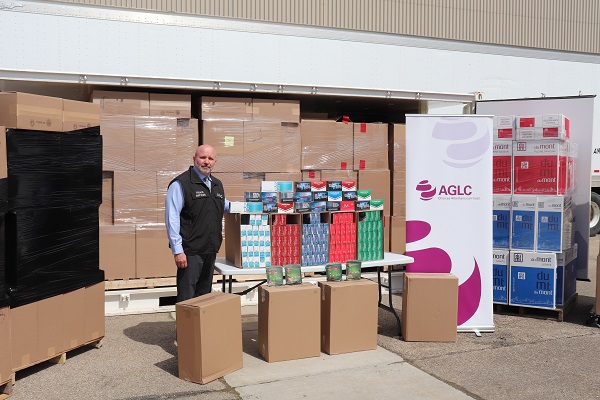
 Alberta2 days ago
Alberta2 days ago30 million contraband cigarettes valued at $25 million dollars seized in Alberta
-

 COVID-1920 hours ago
COVID-1920 hours agoCOVID Lab Leak: Over four later, EcoHealth Alliance funding is finally suspended
-

 Alberta2 days ago
Alberta2 days agoPharmacist-led clinics improve access to health care: Lessons from Alberta
-

 Automotive2 days ago
Automotive2 days agoGovernments in Canada accelerate EV ‘investments’ as automakers reverse course
-
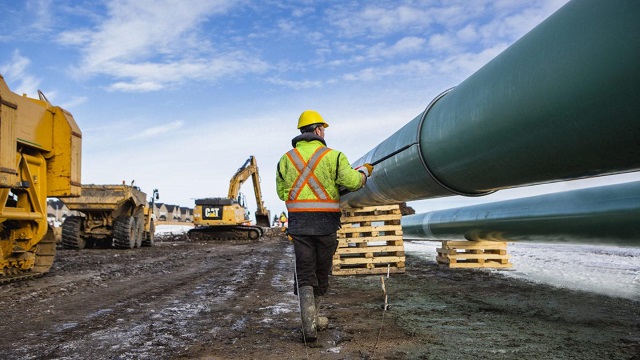
 Canadian Energy Centre2 days ago
Canadian Energy Centre2 days agoTrans Mountain completion shows victory of good faith Indigenous consultation
-
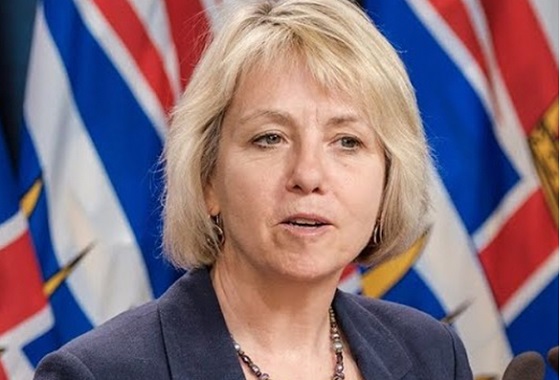
 COVID-192 days ago
COVID-192 days agoHealthcare workers obtain partial win against Bonnie Henry in BC Supreme Court
-
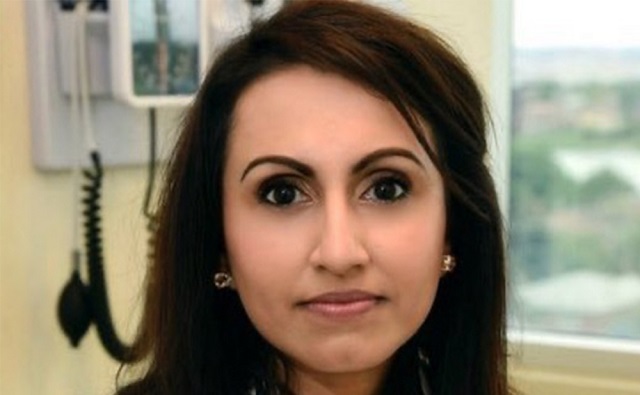
 COVID-192 days ago
COVID-192 days agoElon Musk-backed doctor critical of COVID response vows appeal after court sides with medical board
-
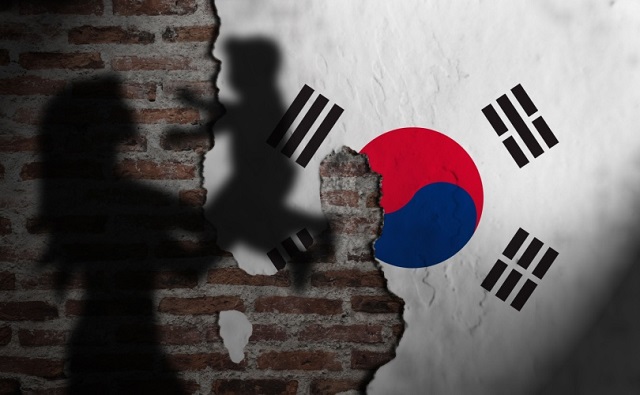
 Health2 days ago
Health2 days agoSouth Korean president declares low birth rate a ‘national emergency,’ plans new ministry to address it






